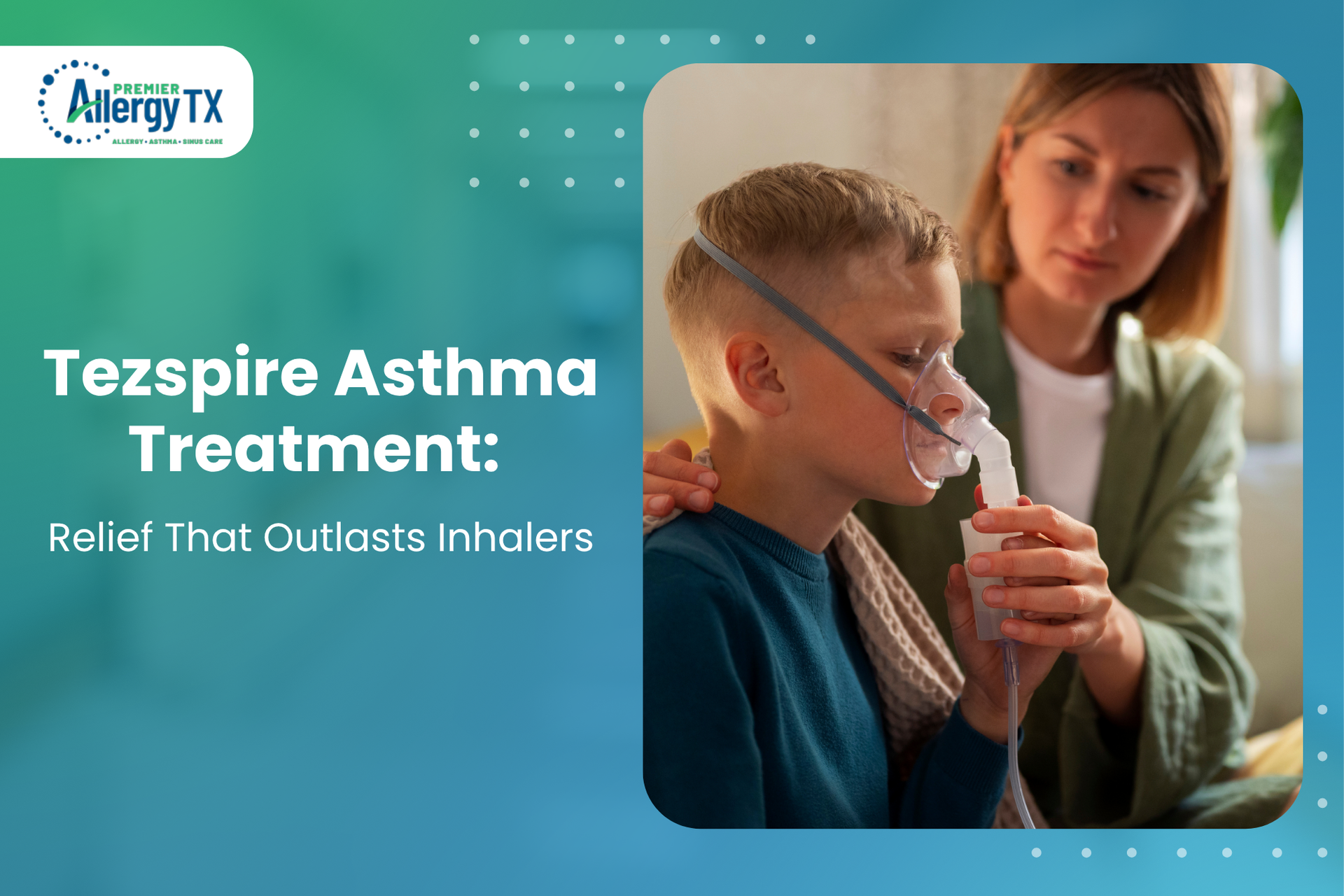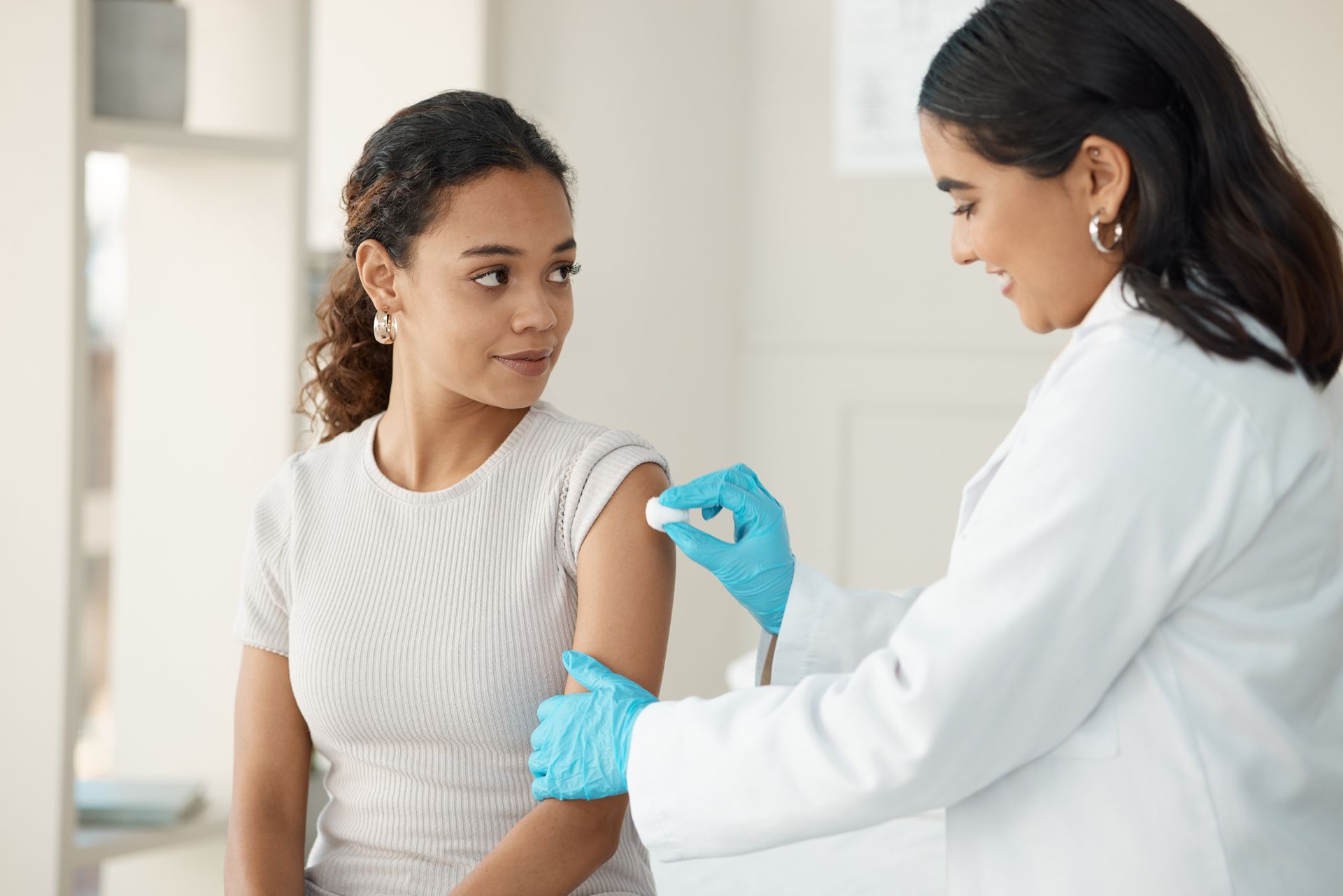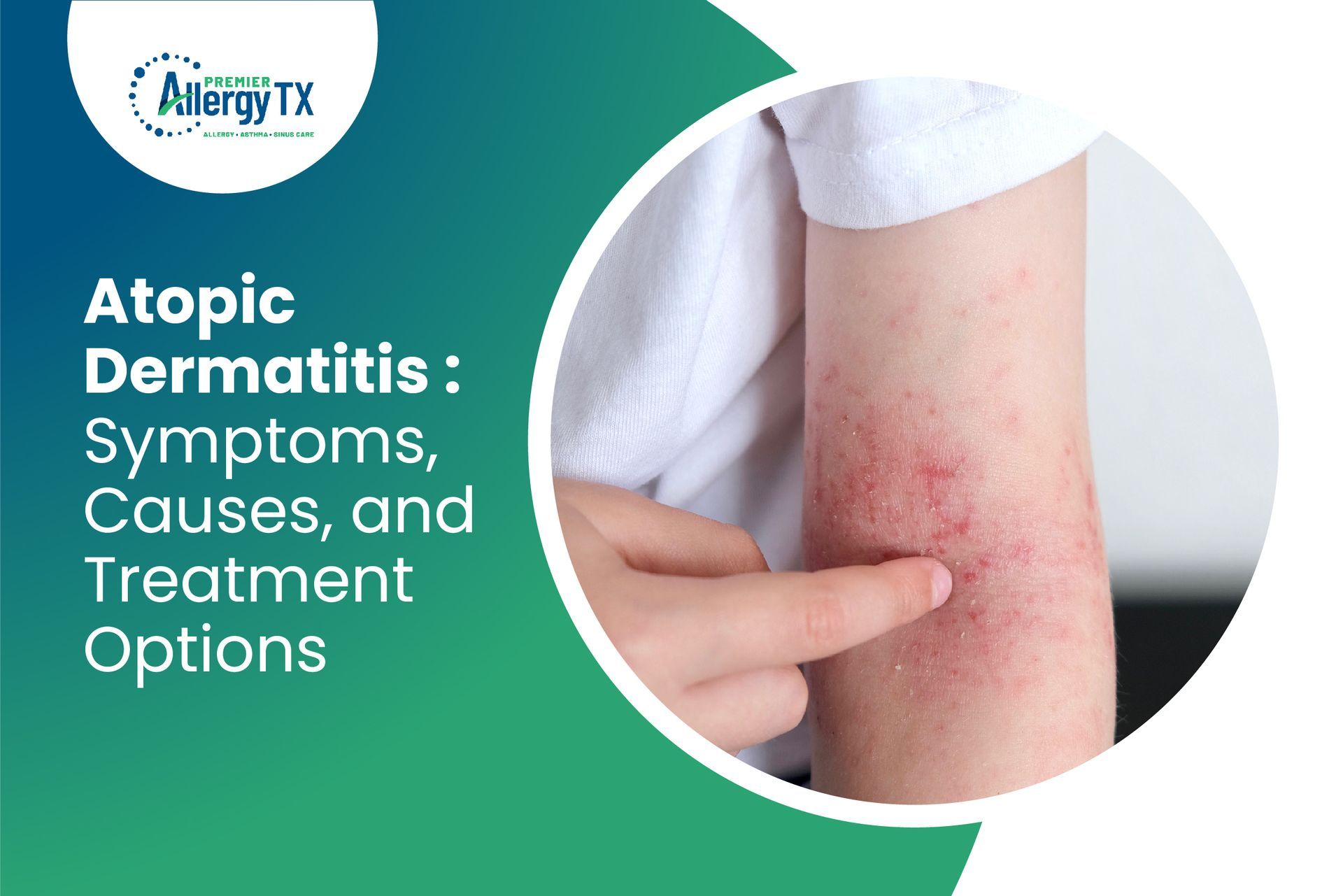Treating Allergies with Sublingual Immunotherapy

Sublingual (under the tongue) Immunotherapy is an alternative way to treat allergies without injections. Sublingual Immunotherapy (SLIT) is an alternative way to treat allergies without injections. SLIT is a form of immunotherapy that involves putting tablets or drops of allergen extracts under the tongue. This form of immunotherapy has been used for years in Europe and recently has had increased interest in the United States.
The tablets or drops are placed under the tongue for one to two minutes and then swallowed. The process is repeated from three days a week to as often as daily. The tablets will increase your tolerance to the allergen and reduce your symptoms over time. For continued effectiveness, treatment may be needed for three years or longer.
Currently, the only forms of SLIT approved by the FDA are tablets for ragweed, northern pasture grasses, and dust mites. Allergy drops are not FDA-approved and are off-label in the United States. They are not covered by most insurance, Medicare or Medicaid. At Premier Allergy of Texas, we can evaluate your symptoms and provide you with primary immunodeficiency treatment in San Antonio.
How is treatment Administered?
Allergy testing must first be performed to confirm your sensitivities. Once this is determined, an allergen extract is prepared in drop form, or a tablet is prescribed. You will be directed to keep it under your tongue for one to two minutes and then swallow it. The process is typically repeated daily with recommendations that therapy be continued for three to five years to develop lasting immunity. For some allergies, you take SLIT before and during the allergy season. Other allergens, such as dust mites, may be treated year-round. The length of your treatment is based on which form of SLIT you are taking and input from your allergist.
Is Sublingual Immunotherapy effective and safe?
Most clinical trials and surveys published over at least 20 years show that SLIT is relatively safe and effective for the treatment of allergic rhinitis and asthma caused by allergies to tree, grass, and weeds pollens as well as cat dander and dust mites. Evidence is emerging that SLIT may be effective for treating the red, itchy eyes caused by pollens. In addition, it might prove an effective therapy for children with mild eczema and is currently being studied for its potential to treat food allergies.
Side effects among both children and adults are usually local and mild, most often occur early in treatment, and include itching in the mouth or stomach problems. These can usually be managed by dose adjustments. Very rarely, severe allergic reactions have been reported using SLIT. Therefore, this allergy treatment is best prescribed by an allergist.
What are the risks of Sublingual Immunotherapy?
For the most part, SLIT risks relate to the nature of the treatment: it is administered at home and without direct medical supervision. You should therefore receive clear guidance from your allergist on managing adverse reactions and treatment interruptions and should know when to return to your allergist for further advice.
Will SLIT work for me?
People with documented allergic disease (allergic rhinitis, allergic conjunctivitis and/or allergic asthma) by allergy testing may be considered for SLIT. Young children have been shown to tolerate and benefit from SLIT, as have older adults. Pregnant women, as is considered the general rule of thumb for allergy shots, can continue SLIT during pregnancy but should not start the therapy while pregnant. People with severe asthma may need to be monitored more closely on SLIT since asthma symptoms can worsen with SLIT.
Most studies on SLIT have focused on people with one type of allergy, such as grass, ragweed, or dust mite allergy. People with multiple allergies, such as to molds, pollens, pet dander, and dust mites, may not be good candidates for SLIT, given the large volume of different allergen extracts that would need to be taken.
Is SLIT better than allergy shots?
Both types of allergy immunotherapy help the body build resistance to the effects of an allergen, reducing symptoms.
Traditional allergy shots have been a proven treatment for allergic rhinitis, allergic conjunctivitis, allergic asthma, and insect stings for more than 100 years. Allergy shots have been FDA proven for many years, although they need to be given in a physician’s office due to the potential for severe side effects. Therefore, they may be an inconvenience to many people.
Allergy sufferers are typically allergic to more than one allergen, and treatment with multiple allergens is frequently needed. Allergy tablets treat only one type of allergen. Allergy drops and allergy shots, also known as subcutaneous immunotherapy (SCIT), can provide relief for more than one allergen.
Studies comparing the efficacy of traditional allergy shots and SLIT show that allergy shots are better at treating allergic rhinitis and asthma symptoms. In addition, immunologic markers and other tests that correlate with response to immunotherapy are seen less commonly in people receiving SLIT. Therefore, while allergy shots appear to be superior at treating allergic diseases, SLIT will likely become an important treatment option for people unwilling or unable to receive allergy shots.
Does My Insurance Cover SLIT?
Since SLIT is currently not an FDA-approved therapy, your insurance will not cover this treatment and, therefore, cannot be billed. Therefore, you are responsible for the cost of SLIT. The cost of SLIT currently ranges from $40-100 per month, which includes the start-up kit and monthly refills.
While this may sound expensive, the cost of SLIT can be quite competitive with traditional allergy shots. This is because there is no travel time and costs associated with SLIT, unlike allergy shots. Additionally, no co-pays or deductibles apply. It is possible that the costs of SLIT could be covered by a Health Savings Account (HSA) associated with your insurance; however, you are solely responsible for determining if your HSA plan will cover your SLIT costs.
How Do I Know Which Therapy is Right for Me?
At
Premier Allergy of Texas, our aim is to get your allergy symptoms under the best control possible with the least amount of medication necessary. There is no “one-size fits all” therapy, and what works for one person with allergies may not work for another. Whether you choose to manage your allergies with avoidance of your triggers, a wide variety of allergy medications, traditional allergy shots, or SLIT, our
immunology specialist in San Antonio will work with you to develop a treatment regimen that is right for you.
Treating Allergies with Sublingual Immunotherapy FAQs
What is sublingual immunotherapy for allergies?
Sublingual immunotherapy (SLIT) is a treatment that involves placing allergy drops or tablets under the tongue to help the body build tolerance to allergens over time. It’s a needle-free alternative to traditional allergy shots.
How effective is sublingual immunotherapy in treating allergies?
SLIT has been shown to effectively reduce symptoms of allergic rhinitis, asthma, and certain food allergies. Many patients experience long-term relief even after treatment ends.
What types of allergies can be treated with sublingual immunotherapy?
Sublingual immunotherapy is commonly used for environmental allergies such as pollen, dust mites, mold, and pet dander. Some specialized clinics may also offer SLIT for certain food allergies.
Is sublingual immunotherapy safe for children?
Yes, SLIT is considered safe for children and is often a preferred option for those who are not comfortable with allergy shots. It’s important to follow the allergist’s dosage and monitoring guidelines.
How does Premier Allergy TX personalize sublingual immunotherapy treatment?
At Premier Allergy TX, we customize SLIT treatment plans based on your allergy test results, medical history, and lifestyle needs—providing a safe, convenient, and effective approach to allergy relief.












